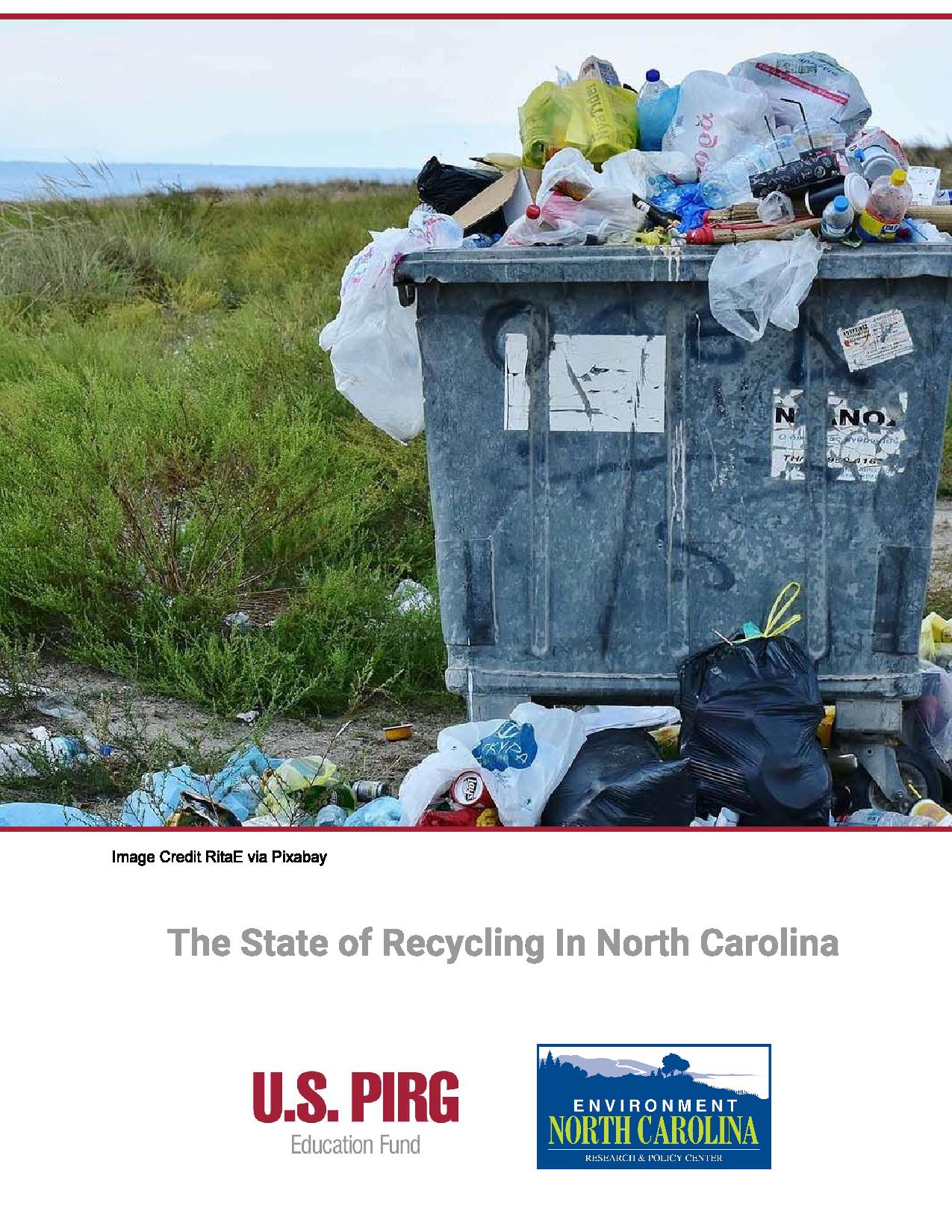The State of Recycling in North Carolina
You toss your plastic water bottle in a recycling bin after coming home from a trip to the beach, hoping the plastic from that bottle will be in next year’s plastic bottle, right? It most likely will not. Currently, plastic can only be re-manufactured a limited number of times, at best into a lower quality product because it degrades each time it is recycled. The value of recycled plastic may be low enough that your bottle is instead burned in an incinerator or dumped into a landfill. A few years ago, that plastic might have been sold to China or another foreign nation. However, over the last few years, countries across the Pacific are putting restrictions on importing U.S. waste. Without these export markets, the U.S. recycling industry is in serious trouble, as exemplified by your plastic bottle’s likely journey to a landfill or incinerator. Of course, using a reusable water bottle would have avoided this issue, and for that reason, reduction and reuse strategies are preferable to recycling, even when recycling works. This report dicusses the state of recycling in North Carolina and the soultions that are available.

Environment North Carolina Research and Policy Center
Across the United States , our recycling system is faltering. Local governments from Jackson, Mississippi to Sierra Vista, Arizona are ending their curbside recycling programs. Many other municipalities have reduced the list of materials they will accept. 2 3 Even when recycling does end up in a blue bin, it may be immediately landfilled or burned –until earlier this year roughly half of Philadelphia’s collected recycling was being sent to incinerators. 4 These are not isolated incidents but are increasingly our new normal. What went wrong? Why are we moving backwards on recycling, an important tool for fighting environmental pollution and climate change? And why is plastic to blame?
This report discusses the state of recycling across the nation as well as in North Carolina. It looks at the decline of international recycling markets as well as the onging strucutal issues and the consequences of our weak recycling systems. This report dives into the state findings over the 2016-2017 fiscal year sand discusses the soultions that exist.
